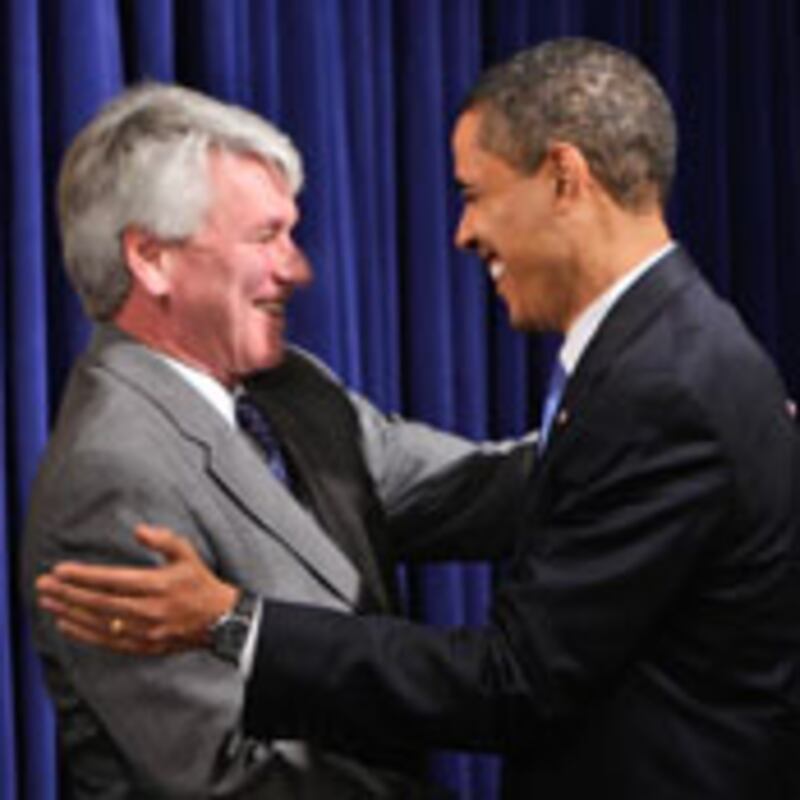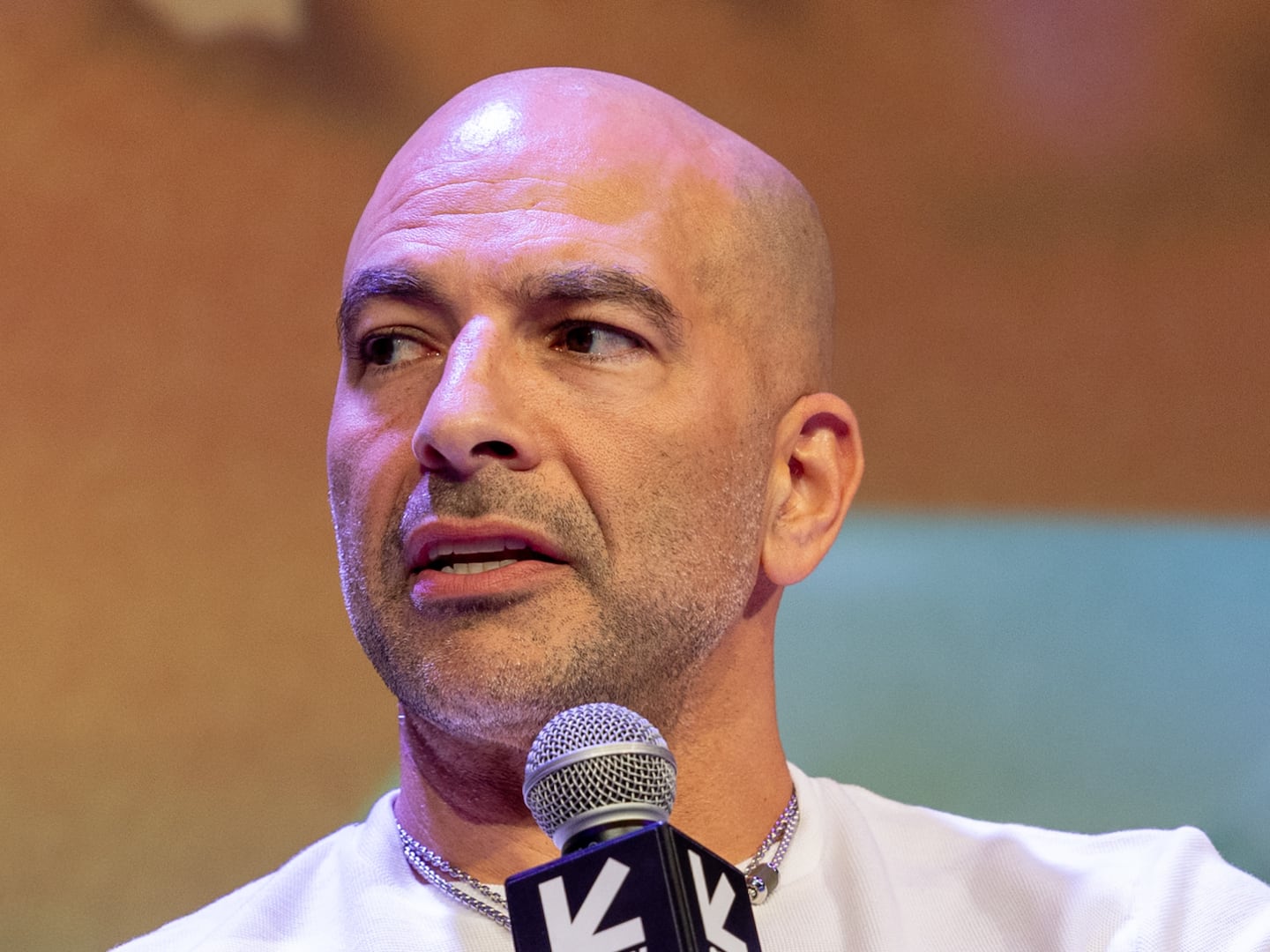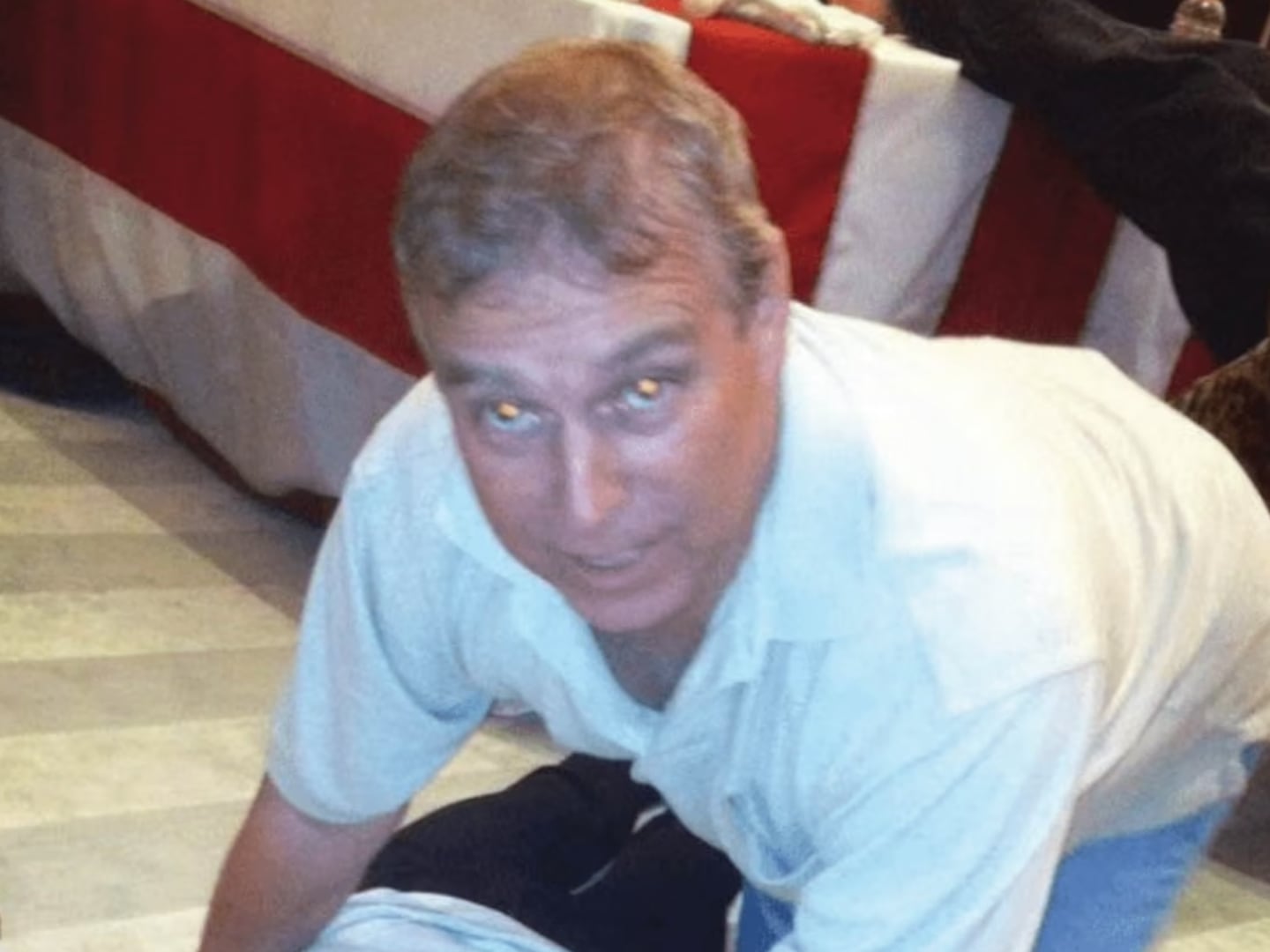
Gregory Craig, White House counsel to President Obama and national security advisor to Obama during the presidential campaign, resigned his post this past Friday. But when rumors broke Thursday of his imminent departure, Craig had not written his farewell note and may not have planned to leave–yet.
Since the summer, word had been leaking that Greg Craig’s days were numbered and that Obama campaign legal counsel Bob Bauer would be moving in to take Craig’s spot. But the situation seemed similar to the leaks about National Security Advisor Jim Jones’ supposedly tenuous hold on his job—which were either untrue, or turned around by Jones’ performance. The leaks about Craig also seemed unfounded—especially in light of direct statements from the White House that the statements were untrue and that he was not departing.
The sustained nature of the leaks—and the fact that they ultimately proved to be true—indicates something quite disappointing for anyone who had hoped that the Obama White House would operate more transparently and honestly than the Bush team had.
Some observers are now calling this incident the Obama team’s first assassination by leak.
• Lloyd Grove: The Boys Obama Throws Under the BusSuch intrigue and innuendo stand in sharp contrast to the internal vow of key stakeholders in Barack Obama’s campaign, as reported in David Plouffe’s insider account Audacity to Win—whom he says vowed not to allow “@#%holes” and leaks and the blame game to disrupt any aspect of their campaign. When problems arose or mistakes were made, the president and his team were forthright and dealt with each other directly and confessed their sins, when they committed them, to the public.
Obama himself set a tone of a “No Drama Obama” campaign and worked hard to keep the campaign’s machinations on the high road and not in the political gutter.
What just happened to Gregory Craig should not have happened in Obama Land. It’s something from what Dick Cheney would have called “The Dark Side”--where insinuation and character assassination were leaked to undermine a foe. Think of the manner in which Scooter Libby and Karl Rove promulgated the revelation that Bush administration thorn Joe Wilson was married to a CIA covert operative.
I spoke to Gregory Craig in the summer when the first leaks began to break. While he suspected they were driven by someone in the White House who was frustrated with the slow progress on shuttering GITMO, Craig did not know who was out to get him. He had no idea.
But the sustained nature of the leaks—and the fact that they ultimately proved to be true—indicates something quite disappointing for anyone who had hoped that the Obama White House would operate more transparently and honestly than the Bush team had.
In fact, leaks are becoming standard fare by key players in the Obama administration. Someone, most likely on the military/intel side of the president’s national security bureaucracy, leaked Afghanistan Commanding General Stanley McChrystal’s report to Bob Woodward. Recently, other political players infuriated U.S. Ambassador to Afghanistan Karl Eikenberry by leaking his eleventh-hour contrarian view on a U.S. force surge to the press.
But it’s quite hard to maintain the kind of Obama-esque upbeat tone of transparency and forthrightness and punish staff for leaking when the president himself is standing by and doing nothing as his closest advisors undermine one of their own.
NPR’s Nina Totenberg puts the finger on White House Chief of Staff Rahm Emanuel. “There doesn’t seem to be much doubt that these leaks came at least indirectly from Rahm Emanuel,” she reported. “What is the cause of the friction? It's very hard to say. Was it Rahm not wanting to have another power center? Was it their personalities? Was it Rahm seeing the GITMO stuff as a distraction from the president's agenda?"
If the leaks were, in fact, made with President Obama’s encouragement, they could have come from any number of others deep inside the team – including David Axelrod, Valerie Jarrett, or Denis McDonough. It almost doesn’t matter who among these insiders might have done the leaking. None of them would have engaged in such an effort to dislodge Greg Craig unless the president had lost faith in his counsel.
But that begs the question: Why didn’t the president himself have a direct discussion with his counsel? Why didn’t Rahm Emanuel, as the president’s Cromwell, put it straight to the GITMO-burdened White House lawyer? Obama might have been uncomfortable with dislodging a friend and someone who had been so valuable and close during the campaign. As for Emanuel, it may be that he excels in and enjoys political intrigue more than being upfront.
Whatever the reason for pushing Craig out—be it his failure to put the dynamics in place to shut down the Guantanamo detention center in the first year of the Obama presidency, or something much more substantial than this—the White House counsel was on the outs with Obama, and few had the backbone to put it to him directly.
Now that the White House has opened the door to the political tradecraft of leaks, others on the Obama team may feel empowered to deploy these indirect assaults in their own battles against internal foes. Given the “team of rivals” Obama has assembled in nearly every policy arena, the coming policy wars in and around the White House will be fascinating to watch.
But what we just saw in Greg Craig’s firing was not “change we can believe in.” It was a sign that the dark side has taken hold at the White House.
Steve Clemons is Director of the American Strategy Program at the New America Foundation and publisher of the popular political blog, The Washington Note.






